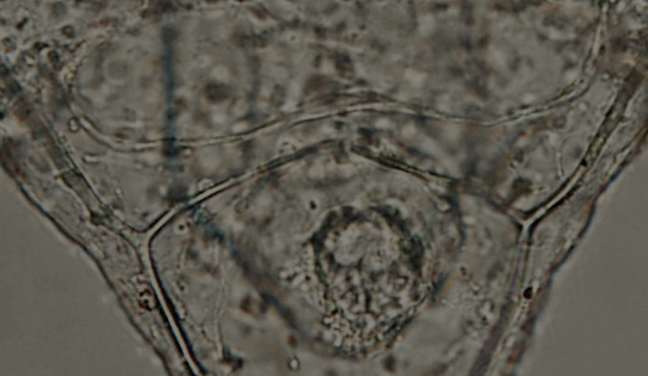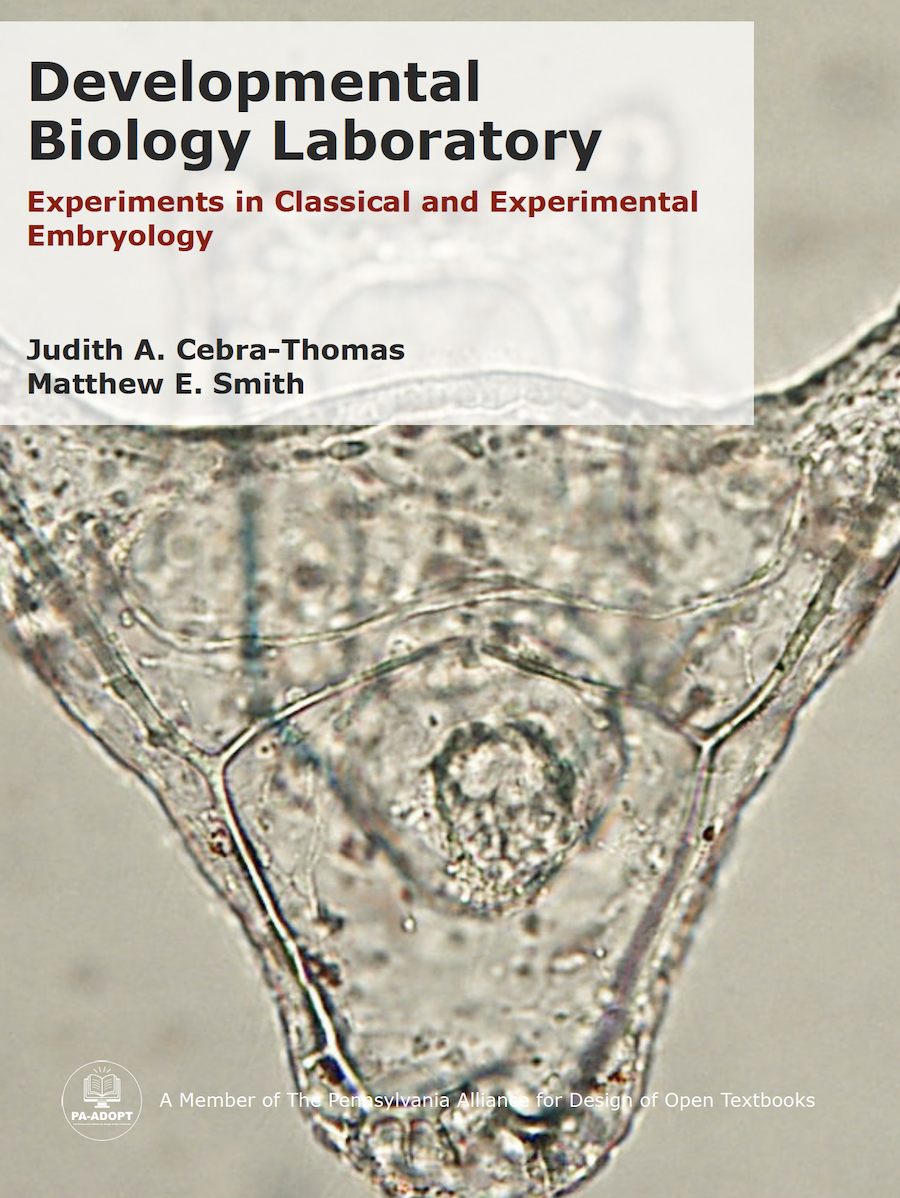Developmental Biology Laboratory: Experiments in Classical and Experimental Embryology
by Judith A. Cebra-Thomas, Ph.D. and Matthew E. Smith
Keywords: Embryology, Developmental Biology,
Experimental Techniques, Lab Protocols
About the Book
This work is designed primarily for use as a laboratory manual in college-level Embryology and Developmental Biology courses and as a companion to developmental biology textbooks. It explores several model animal systems and a variety of the scientific approaches that have been used to study them. It includes both classical embryological observations and manipulations, and more modern techniques, including organ culture and the disruption of developmental processes through pharmacology. The experiments described in the lab manual are designed for 2- to 3-hour laboratory periods. The introductory protocols in each chapter can be adapted to Introductory Biology or Cell Biology courses, while the later protocols are more suited to an advanced course in Developmental Biology. The manual also includes extensive illustrations, preparation guides and appendices to aid the instructor in setting up each lab.
Chapters
- Chapter 1: Sea Urchin Development
- Chapter 2: Chicken Development
- Chapter 3: Zebrafish Development
- Appendix A: Instructor’s Notes for Sea Urchin Protocols
- Appendix B: Instructor’s Notes for Chicken Protocols
- Appendix C: Instructor’s Notes for Zebrafish Protocols
Usage
Readers
The eTextbooks created as a part of this program are provided in two formats: ePub and PDF. Please refer to our Reader Support section for guidance on which format may be best for you and the device(s) you use.
Instructors
If you are an instructor seeking to use this eTextbook in your own course(s) please feel free to download the ePub and/or PDF file(s) for your use, but make sure to complete our eTextbook Usage Survey (this information is used for program evaluation purposes).
If you are interested in making revisions and edits to this eTextbook please note that this is possible since the book is under a Creative Commons License, which allows you to remix, reuse, revise, and redistribute the eTextbook. Please refer to the Faculty Support Page, specifically looking at Remixing. You can download Developmental Biology Laboratory: Experiments in Classical and Experimental Embryology‘ Apple Pages File in order to use the original document to revise and remix the eTextbook for your purposes.
Citations
MLA: Cebra-Thomas, Judith A., and Matthew E. Smith. Developmental Biology Laboratory: Experiments in Classical and Experimental Embryology. First, The Pennsylvania Alliance for Design of Open Textbooks (PA-ADOPT), 2025.
APA: Cebra-Thomas, J. A., & Smith, M. E. (2025). Developmental Biology Laboratory: Experiments in Classical and Experimental Embryology. (First). The Pennsylvania Alliance for Design of Open Textbooks (PA-ADOPT).
Chicago: Cebra-Thomas, Judith A., and Matthew E. Smith. Developmental Biology Laboratory: Experiments in Classical and Experimental Embryology. First. The Pennsylvania Alliance for Design of Open Textbooks (PA-ADOPT), 2025.
Peer Review
This eTextbook went through an Open Peer Review process. The peer review process used the Open SUNY Textbook Peer Review Guidelines, allowing peer reviewers to read the text carefully and evaluate the following:
- Educational Significance of Content including accuracy, appropriate and useful materials, valid and significant concepts, models, and skills, and key elements;
- Effectiveness as a Teaching Resource including a clear explanation of the concepts, alignment of materials to the learning process of the target audience, and alignment of the learning objectives with course goals; and
- Readability and Ease of Use including clarity and comprehensiveness, consistent writing style, readability and ease of use (logic, sequence, and flow), appropriateness for target readership level, and quality of Interactivity and multimedia learning objects.
As a part of the open peer review process, the public review conducted by Dr. Julie Drawbridge is made available: Peer Review Document (PDF).


